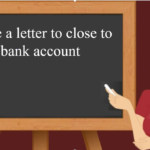A phrase is a group of words that functions as a single unit within a sentence but does not contain both a subject and a predicate. Phrases can consist of various combinations of words, serving specific roles in sentence structure. There are different types of phrases, each with its own purpose.
Types of Phrases:
-
Noun Phrase:
- A noun phrase consists of a noun and its modifiers. It functions as a noun in a sentence.
- Examples:
- The old man enjoys fishing by the lake.
- A shiny necklace caught her eye in the store.
- Several students participated in the science fair.
-
Verb Phrase:
- A verb phrase includes a main verb and its auxiliary (helping) verbs. It expresses an action or state.
- Examples:
- She is reading a fascinating novel.
- They have completed the project ahead of schedule.
- He will be traveling to Europe next month.
-
Adjective Phrase:
- An adjective phrase consists of an adjective and its modifiers. It describes or modifies a noun or pronoun.
- Examples:
- The house with a red roof is ours.
- An incredibly talented artist painted the mural.
- A book that is worth reading should be chosen.
-
Adverb Phrase:
- An adverb phrase includes an adverb and its modifiers. It describes or modifies a verb, adjective, or other adverbs.
- Examples:
- They walked to the park very slowly.
- She spoke quite softly during the meeting.
- The car moved quite fast down the highway.
-
Prepositional Phrase:
- A prepositional phrase begins with a preposition and ends with a noun (object of the preposition). It provides additional information about location, time, or other relationships.
- Examples:
- In the morning, we enjoy a cup of coffee.
- Under the bridge, a cat found shelter.
- With a smile, she greeted her guests.
-
Participial Phrase:
- A participial phrase includes a present or past participle and its modifiers. It functions as an adjective.
- Examples:
- Broken and abandoned, the old bicycle leaned against the fence.
- Excited and nervous, she waited for the interview.
- Having finished her homework, she went to bed.
-
Gerund Phrase:
- A gerund phrase includes a gerund (the -ing form of a verb) and its modifiers. It functions as a noun.
- Examples:
- Swimming in the ocean is her favorite summer activity.
- Eating chocolate is a guilty pleasure for many.
- Reading books broadens the mind.
-
Infinitive Phrase:
- An infinitive phrase includes an infinitive verb (to + base form) and its modifiers. It can function as a noun, adjective, or adverb.
- Examples:
- To learn a new language is challenging but rewarding.
- She decided to visit her grandparents over the weekend.
- He needs a computer to complete the project.
These examples illustrate various types of phrases and their functions within sentences. Understanding phrases enhances the ability to analyze sentence structure and convey precise meanings in writing.
1) Question: What type of phrase is “under the table” in the sentence “The cat hid under the table”?
A) Noun Phrase
B) Adverb Phrase
C) Prepositional Phrase
A) Noun Phrase
B) Adverb Phrase
C) Prepositional Phrase
Show/Hide
Answer: C) Prepositional Phrase
Explanation: “Under the table” functions as a prepositional phrase, providing information about the cat’s location.
2) Question: Identify the phrase in the sentence: “The girl with the red hat is my sister.”
A) Adjective Phrase
B) Gerund Phrase
C) Verb Phrase
A) Adjective Phrase
B) Gerund Phrase
C) Verb Phrase
Show/Hide
Answer: A) Adjective Phrase
Explanation: “With the red hat” describes the girl and functions as an adjective phrase.
3) Question: What type of phrase is “singing in the rain” in the sentence “She was happily singing in the rain”?
A) Participial Phrase
B) Gerund Phrase
C) Adverb Phrase
A) Participial Phrase
B) Gerund Phrase
C) Adverb Phrase
Show/Hide
Answer: C) Adverb Phrase
Explanation: “Singing in the rain” modifies the verb “was singing” and functions as an adverb phrase, indicating how she was singing.
4) Question: Identify the phrase in the sentence: “Playing video games for hours is his favorite pastime.”
A) Adjective Phrase
B) Gerund Phrase
C) Infinitive Phrase
A) Adjective Phrase
B) Gerund Phrase
C) Infinitive Phrase
Show/Hide
Answer: B) Gerund Phrase
Explanation: “Playing video games for hours” functions as a gerund phrase, serving as the subject of the sentence.
5) Question: What type of phrase is “with a smile” in the sentence “She greeted the guests with a smile”?
A) Adjective Phrase
B) Adverb Phrase
C) Prepositional Phrase
A) Adjective Phrase
B) Adverb Phrase
C) Prepositional Phrase
Show/Hide
Answer: C) Prepositional Phrase
Explanation: “With a smile” functions as a prepositional phrase, providing additional information about how she greeted the guests.
6) Question: Identify the phrase in the sentence: “To solve the problem, teamwork is essential.”
A) Noun Phrase
B) Infinitive Phrase
C) Participial Phrase
A) Noun Phrase
B) Infinitive Phrase
C) Participial Phrase
Show/Hide
Answer: B) Infinitive Phrase
Explanation: “To solve the problem” functions as an infinitive phrase, serving as the subject of the sentence.
7) Question: What type of phrase is “covered in colorful patterns” in the sentence “The walls were covered in colorful patterns”?
A) Adjective Phrase
B) Adverb Phrase
C) Participle Phrase
A) Adjective Phrase
B) Adverb Phrase
C) Participle Phrase
Show/Hide
Answer: A) Adjective Phrase
Explanation: “Covered in colorful patterns” describes the walls and functions as an adjective phrase.
8) Question: Identify the phrase in the sentence: “After finishing her homework, she went to bed.”
A) Participial Phrase
B) Gerund Phrase
C) Adverb Phrase
A) Participial Phrase
B) Gerund Phrase
C) Adverb Phrase
Show/Hide
Answer: A) Participial Phrase
Explanation: “After finishing her homework” functions as a participial phrase, providing information about what happened before she went to bed.
9) Question: What type of phrase is “with a loud noise” in the sentence “The door slammed shut with a loud noise”?
A) Adjective Phrase
B) Adverb Phrase
C) Noun Phrase
A) Adjective Phrase
B) Adverb Phrase
C) Noun Phrase
Show/Hide
Answer: B) Adverb Phrase
Explanation: “With a loud noise” functions as an adverb phrase, describing how the door slammed shut.
10) Question: Identify the phrase in the sentence: “The boy reading a book is my neighbor’s son.”
A) Noun Phrase
B) Participial Phrase
C) Prepositional Phrase
A) Noun Phrase
B) Participial Phrase
C) Prepositional Phrase
Show/Hide
Answer: B) Participial Phrase
Explanation: “Reading a book” functions as a participial phrase, providing additional information about the boy.





